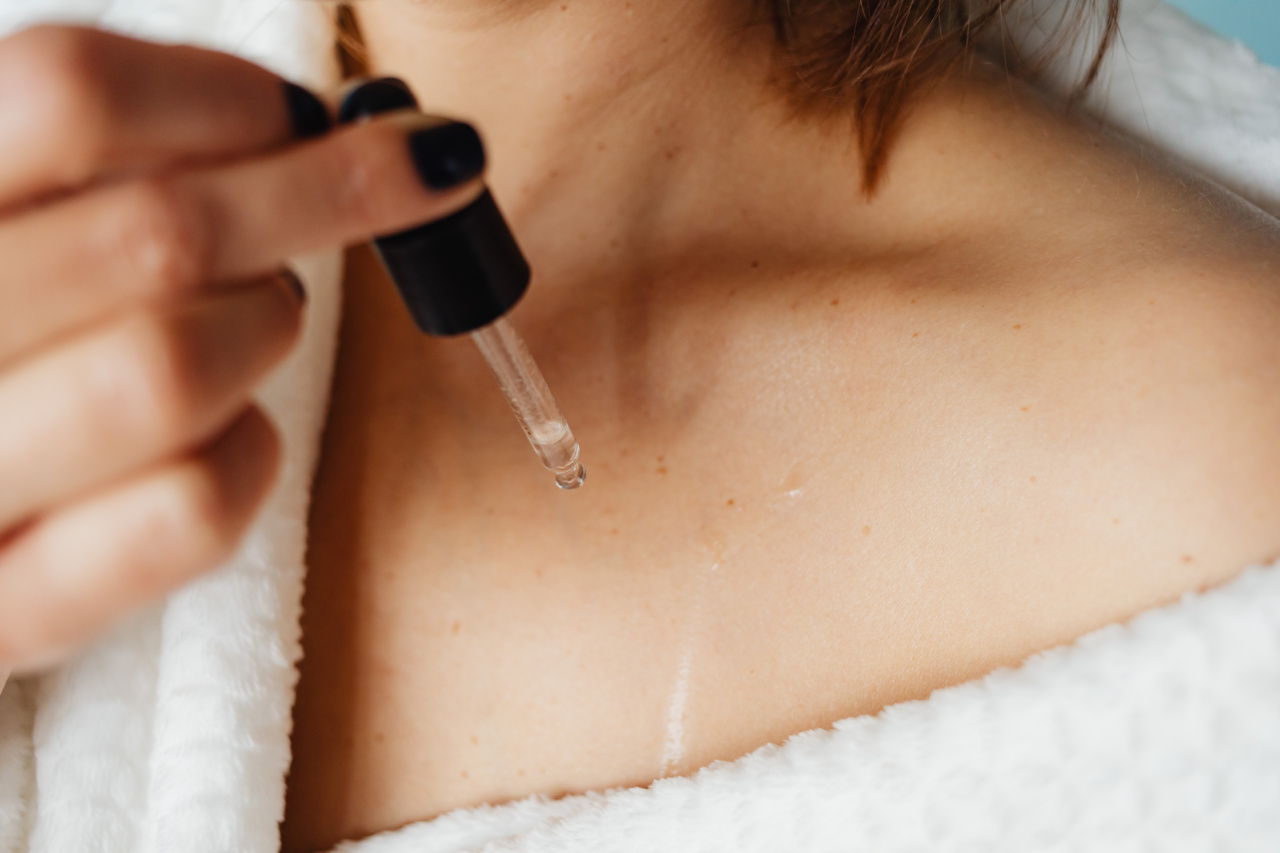A tingling sensation in the genital area can be a cause for concern and may indicate an underlying health issue. While occasional tingling can be harmless, persistent or recurrent symptoms should be evaluated by a healthcare professional.
It is important to understand the possible causes, symptoms, and treatment options for this discomfort. This article explores the various factors that can contribute to a tingling sensation and offers insights into appropriate treatment approaches.
Common Causes of Tingling Sensation in the Genital Area
1. Genital Herpes: One of the most common viral infections that can cause tingling in the genital area is genital herpes. This sexually transmitted infection is caused by the herpes simplex virus (HSV-2).
Tingling or itching sensation often precedes the appearance of painful blisters.
2. Yeast Infection: Candidiasis, commonly known as a yeast infection, can cause tingling or itching in the genital area. It occurs when there is an overgrowth of Candida, a type of yeast that is normally present in the vagina.
Other symptoms may include redness, swelling, and a thick, white vaginal discharge.
3. Contact Dermatitis: Certain products, such as soaps, lotions, or feminine hygiene products, can irritate the delicate skin in the genital area, leading to a tingling sensation.
This condition is known as contact dermatitis and is often accompanied by redness, itching, and inflammation.
4. Sexually Transmitted Infections (STIs): Various STIs, including chlamydia, gonorrhea, and trichomoniasis, can cause tingling sensations in the genital area.
These infections are typically transmitted through sexual contact and require medical intervention for proper diagnosis and treatment.
5. Nerve Damage or Irritation: In some cases, nerve damage or irritation can result in tingling sensations in the genital area. This can be caused by various factors, such as trauma, surgery, or certain medical conditions like diabetes.
Proper medical evaluation is necessary to determine the underlying cause.
6. Allergies: Some individuals may experience a tingling sensation due to an allergic reaction to certain substances, such as latex condoms or spermicides. Allergies can cause itching, redness, and swelling in addition to the tingling sensation.
7. Hormonal Changes: Fluctuations in hormone levels, especially during menstruation, pregnancy, or menopause, can lead to a tingling sensation in the genital area.
The hormonal changes can affect the nerve endings and blood flow, resulting in tingling or heightened sensitivity.
8. Anxiety or Stress: Psychological factors like anxiety, stress, or chronic tension can manifest physically as tingling sensations in the genital area. These sensations may indicate an overall imbalance in the body’s stress response system.
When to Seek Medical Assistance
While occasional tingling sensations in the genital area may not require medical attention, certain symptoms should not be ignored. It is advisable to consult a healthcare professional if you experience the following:.
– Persistent or recurrent tingling sensations – Severe pain or discomfort – Flu-like symptoms accompanying tingling – Presence of open sores or blisters – Unexplained vaginal discharge – Painful urination or difficulty in passing urine.
A thorough examination and appropriate testing will help diagnose the underlying cause and guide the treatment process.
Treatment Options for Tingling Sensation in the Genital Area
The treatment for a tingling sensation in the genital area depends on the underlying cause. Here are some common treatment options:.
1. Antiviral Medications: In the case of genital herpes, antiviral medications can help manage and reduce the frequency of outbreaks. These medications can alleviate tingling sensations and promote healing of the affected area.
2. Antifungal Medications: Yeast infections can be treated with over-the-counter antifungal creams or prescribed oral medications. These medications help eliminate the overgrowth of yeast and relieve associated tingling sensations.
3. Topical Treatments: Contact dermatitis can be managed by avoiding irritants and using topical corticosteroids or soothing creams to calm the skin and reduce symptoms.
4. Antibiotics: Certain STIs, such as chlamydia or gonorrhea, require antibiotic treatment. It is essential to complete the full course of antibiotics prescribed by a healthcare professional to ensure complete recovery.
5. Nerve Pain Medications: In cases where tingling sensations are due to nerve damage or irritation, medications specifically targeting nerve pain, such as anticonvulsants or antidepressants, can be prescribed to provide relief.
6. Allergy Management: Allergies causing tingling sensations can be managed by avoiding triggers and using antihistamines or corticosteroids under medical guidance.
7. Hormonal Therapy: Hormonal imbalances contributing to tingling sensations may be addressed through hormone therapy or lifestyle changes, as recommended by a healthcare professional.
8. Stress Management Techniques: Psychological causes of tingling sensations can be managed by adopting stress reduction techniques like mindfulness, relaxation exercises, therapy, or counseling.
Prevention and Self-Care
While treatment options are available, adopting preventive measures and self-care practices can help minimize the occurrence of tingling sensations in the genital area. Here are some suggestions:.
1. Practice Good Hygiene: Maintain proper genital hygiene by regularly washing the area with gentle, fragrance-free cleansers. Avoid harsh soaps or perfumed products that can cause irritation.
2. Use Protection: Consistently practice safe sex by using condoms or other barrier methods to reduce the risk of contracting STIs.
3. Stay Dry: Moist conditions can promote the growth of yeast. Ensure the genital area remains clean and dry, especially after bathing or swimming.
4. Choose Skin-Friendly Products: Opt for hypoallergenic and non-irritating products when using soaps, lotions, or detergents in the genital area.
5. Manage Stress: Adopt stress management techniques like exercise, meditation, or relaxation techniques to reduce anxiety and stress levels.
6. Maintain a Healthy Lifestyle: Focus on a well-balanced diet, regular exercise, and getting enough restful sleep to support overall health and immune function.
7. Stay Informed: Educate yourself about sexual health, STIs, and common causes of genital discomfort to identify potential issues and seek prompt medical care if needed.
Remember, while self-care practices can be helpful, it is essential to consult a healthcare professional for an accurate diagnosis and tailored treatment plan.































